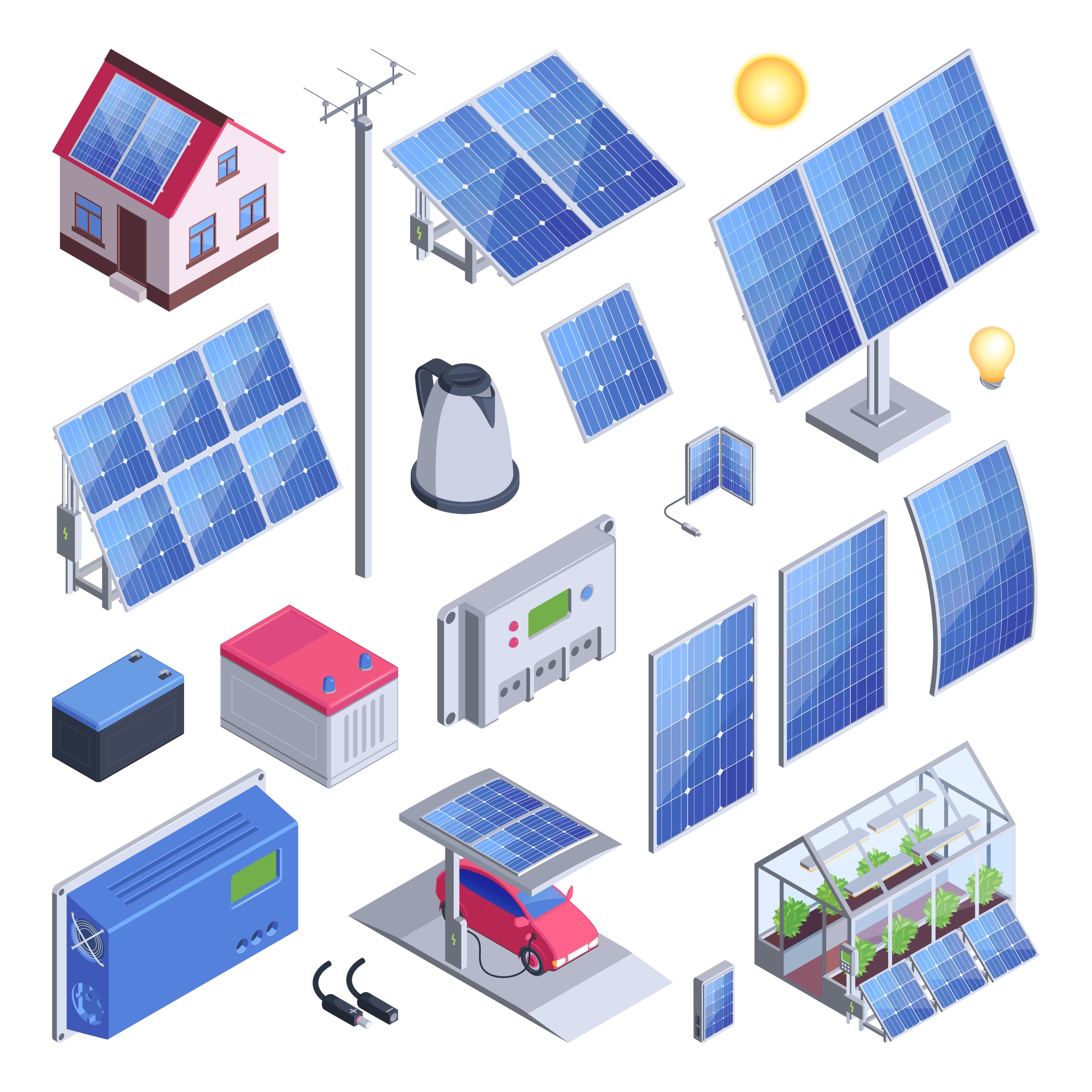How Does a Solar Panel Work ?
- FazipaySolar
- October 26, 2023
- No Comment
- 15
Solar power is a remarkable source of clean and renewable energy, and it all begins with the workhorse of the solar energy industry, which is the solar panel.
To fully understand how solar power works, it’s essential to understand the details of how a solar panel operates.In this blog, we will address the topic, ‘How does a solar panel work ?’
How does a solar panel work?

The Photovoltaic Effect
The core principle behind solar panel operation is the photovoltaic effect. This process allows solar panels to convert sunlight into electricity. Here’s how it works:
1. Absorption of Sunlight:
We construct solar panels using semiconductor materials, typically silicon. Sunlight compose of microscopic energy packets known as photons. The surface of a solar cell absorbs the photons when they come into contact with it.
2. Energy Transfer:
There’s a transfer of energy to the electrons in the semiconductor material, and there’s an absorption of photons. This energy excites the electrons, causing them to move within the material.
3. Generation of Electric Current:
The movement of these excited electrons creates an electric current. This current flows in a single direction, producing direct current (DC) electricity.
From DC to AC: The Role of the Inverter
While solar panels generate DC electricity, most of the appliances and electrical devices in our homes and businesses run on alternating current (AC) electricity.
A device called the inverter converts the DC to AC and this makes the electricity generated by the solar panels usable.
The inverter takes the DC electricity produced by the solar panels and transforms it into AC electricity that can power your home. It ensures that the electricity generated is compatible with the appliances, electronics, and grid.
Electricity Generation
Solar panels continuously generate electricity as long as they receive sunlight. When your solar panel system produces more electricity than you can consume, the excess electricity is sent back to the grid (Net metering)
Net metering allows you to receive credits for the excess electricity you generate.
Solar Panels for Heat
In addition to electricity generation, solar panels can also capture sunlight to produce heat. This is commonly done through solar thermal panels. Solar thermal systems use sunlight to heat a fluid, which can then be used for various applications, including space heating, water heating, and industrial processes.
The Environmental Benefits
We can utilize the power of the sun through solar panels reduces your carbon footprint and contributes to a more sustainable future for our planet.
Solar power has a positive environmental impact as it is a clean and renewable source of power, producing no harmful emissions and playing a significant role in the fight against climate change by reducing greenhouse gas emissions.
Solar panels are the backbone of solar power generation. They utilize the photovoltaic effect to convert sunlight into electricity and, in some cases, heat.
The inverter makes the electricity usable, and net metering can provide credits for excess electricity sent back to the grid.
Understanding how a solar panel works is the first step in realizing the benefits of clean and renewable energy for your home or business.

